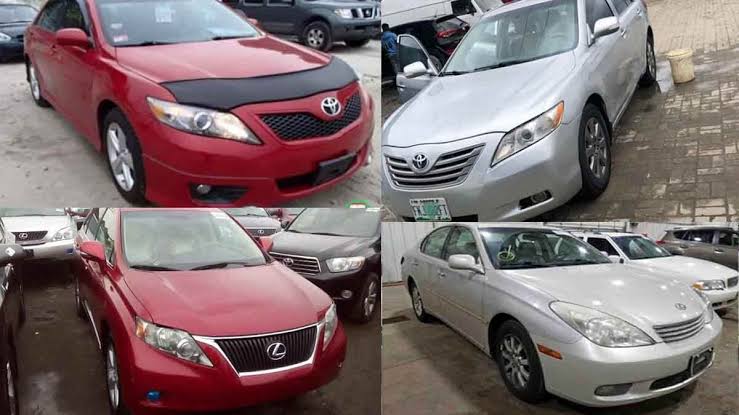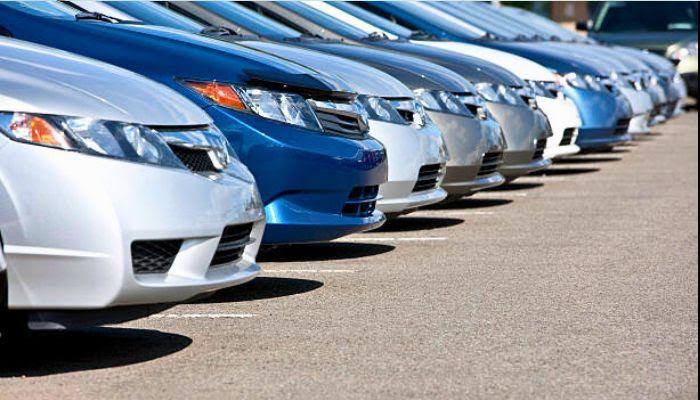
Whether you are looking to sell your current car or planning to buy a used vehicle in Abuja, understanding how to evaluate the resale value of a car is crucial. The resale value can significantly impact your decision-making process, as it determines how much you can expect to recoup from the original price when it’s time to sell. In Abuja, a city known for its growing population and fast-paced urban life, the automotive market is vibrant, but it also has its unique dynamics. In this blog post, we’ll guide you through the steps to evaluate the resale value of a car in Abuja, ensuring that you make informed decisions.
1. Assess the Make and Model of the Car
The Issue: Some car brands and models retain their value better than others. In Abuja, cars with a reputation for reliability and low maintenance costs tend to have higher resale value. Popular brands such as Toyota, Honda, and Nissan are in high demand in the Nigerian market due to their durability and widespread availability of parts.
How to Evaluate:
- Market Popularity: Research the make and model’s popularity in Abuja. Brands with a strong presence in Nigeria are more likely to fetch a higher resale price.
- Age and Condition: Newer cars in good condition are generally worth more. However, some well-maintained older models, especially those with a reputation for reliability, may still command a premium price.
2. Evaluate the Vehicle’s Age and Mileage
The Issue: Like in many parts of the world, the age of a vehicle and the number of kilometers it has driven are key factors in determining its resale value. Generally, the older a car is and the more miles it has driven, the lower its resale value. However, in Abuja, the impact of age on resale value can be somewhat mitigated by the vehicle’s condition and maintenance history.
How to Evaluate:
- Mileage: Cars with lower mileage often fetch higher resale prices. Aim for a vehicle with mileage that is in line with its age. A car with mileage below the national average may command a higher price.
- Age: While a car’s value depreciates with age, cars that are well-maintained and serviced regularly can still hold substantial value even after several years.
3. Inspect the Vehicle’s Condition
The Issue: A well-maintained car will naturally have a higher resale value than a vehicle that has been poorly cared for. Regular maintenance and good upkeep play a major role in determining a car’s condition, which directly affects its resale price.
How to Evaluate:
- Exterior and Interior Condition: Inspect the car’s body for any dents, scratches, or rust. A clean, well-kept exterior, along with a tidy and well-maintained interior, can significantly boost the resale value.
- Engine and Transmission: Ensure the engine is in good working order and the transmission is smooth. A vehicle with a smooth-running engine and reliable transmission is more likely to sell for a higher price.
- Suspension, Tires, and Brakes: Check the suspension system, tires, and brake components. Cars with newer or well-maintained tires and functioning brakes are more desirable and thus more valuable.
4. Check for Service and Maintenance History
The Issue: A car that has a documented history of regular servicing is more attractive to buyers. In Abuja, prospective buyers value cars that come with a reliable service record because it indicates that the vehicle has been properly maintained and is less likely to have hidden issues.
How to Evaluate:
- Service Records: A complete and up-to-date service history shows potential buyers that the car has been taken care of. This includes regular oil changes, brake replacements, tire rotations, and other necessary repairs.
- Accident History: A car that has been in an accident or sustained significant damage can lose a significant portion of its resale value. Ensure the car has no major accident history, or be ready to disclose it if you are selling.
5. Evaluate the Car’s Features and Upgrades
The Issue: Certain features and upgrades can increase the resale value of a car. In Abuja, luxury features and modern technology are in high demand. Cars with advanced safety features, infotainment systems, air conditioning, leather seats, and more can fetch higher resale prices.
How to Evaluate:
- Modern Features: Vehicles equipped with modern technology such as a GPS system, Bluetooth connectivity, reverse cameras, and automatic climate control can command a higher price.
- Luxury Features: Leather upholstery, alloy wheels, sunroofs, and premium sound systems are examples of features that can increase the appeal of a car in the Abuja market.
6. Examine the Car’s Fuel Efficiency
The Issue: Fuel efficiency is an important factor for many car buyers in Abuja, where rising fuel prices can have a significant impact on a person’s monthly budget. Cars that are fuel-efficient and offer good mileage are highly valued in the market.
How to Evaluate:
- Fuel Consumption: Cars that consume less fuel for long distances tend to attract more buyers, especially in a city like Abuja, where people often travel long distances.
- Reputation for Fuel Efficiency: Research the fuel consumption of the make and model you are selling or buying. Car brands with a reputation for excellent fuel efficiency tend to maintain a better resale value.
7. Research the Local Market Trends
The Issue: The resale value of a car in Abuja is also influenced by the local market trends. Certain types of cars, such as SUVs and four-wheel drives, are highly sought after in Abuja due to the city’s terrain and lifestyle. Understanding market demand can help you assess whether a car will hold its value over time.
How to Evaluate:
- Check Online Listings: Look at online platforms such as Jiji.ng, Cars45, or AutoTrader to see the asking prices for similar cars in Abuja. This will give you an idea of what buyers are willing to pay for your vehicle.
- Consult Local Dealers: Visit local car dealerships to get an appraisal or seek advice on the current market conditions for used cars in Abuja. They may also provide insight into which models are trending and in high demand.
8. Consider the Economic Factors
The Issue: Economic factors such as inflation, changes in fuel prices, and government policies (like import restrictions or tariffs) can impact the resale value of cars in Abuja. A sharp rise in fuel prices may make fuel-efficient cars more attractive, while changes in exchange rates can affect the prices of imported vehicles.
How to Evaluate:
- Stay Informed: Keep an eye on economic indicators such as inflation rates, fuel price hikes, and changes in import policies that may affect the value of your vehicle.
- Evaluate Timing: Sometimes, the timing of your sale can influence the price. For example, during a period of rising fuel prices, fuel-efficient cars might be in higher demand.
Conclusion
Evaluating the resale value of a car in Abuja requires careful consideration of various factors, including the make and model, age, condition, mileage, and features of the car. By conducting thorough research, checking the vehicle’s maintenance history, and staying informed about market trends, you can ensure that you get the best possible price when selling your car or buying a used vehicle. In Abuja, where traffic is heavy and the automotive market is growing, making the right choices about car ownership can lead to significant savings and future resale value.
Also check out these posts
Mercedes-Benz Cars for Sale in Abuja: Luxury, Performance, and Style
How to Buy a Used Car in Abuja Safely: A Step-by-Step Guide
The Best Car Showroom in Abuja: Your Ultimate Guide to Finding the Perfect Vehicle
visit www.abujacarsonline.com to see all cheap and affordable cars for sale in Abuja Nigeria

